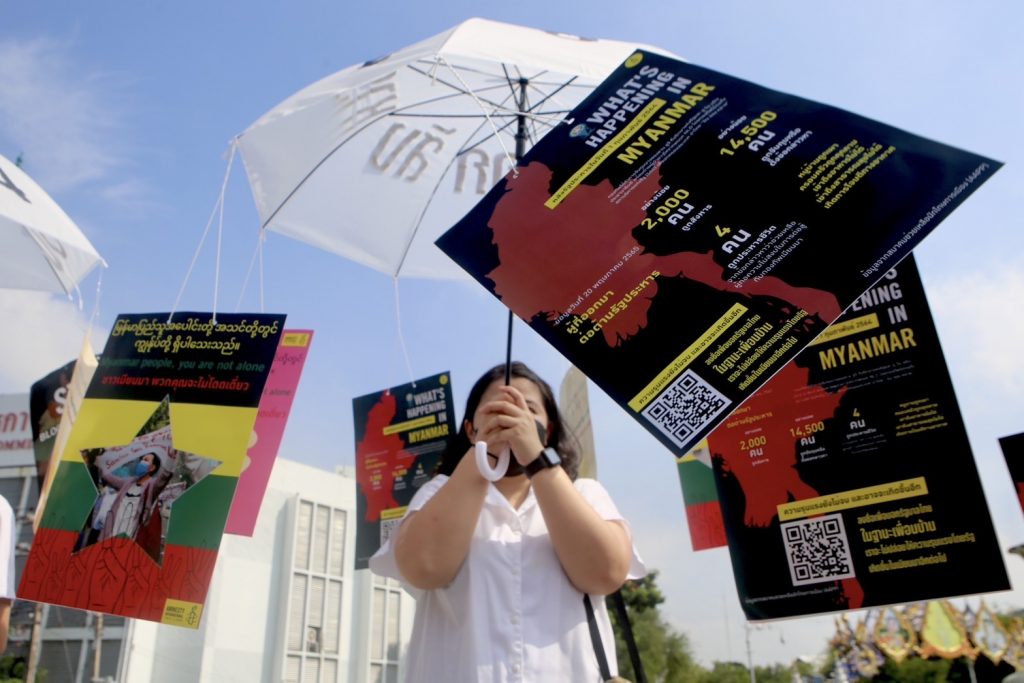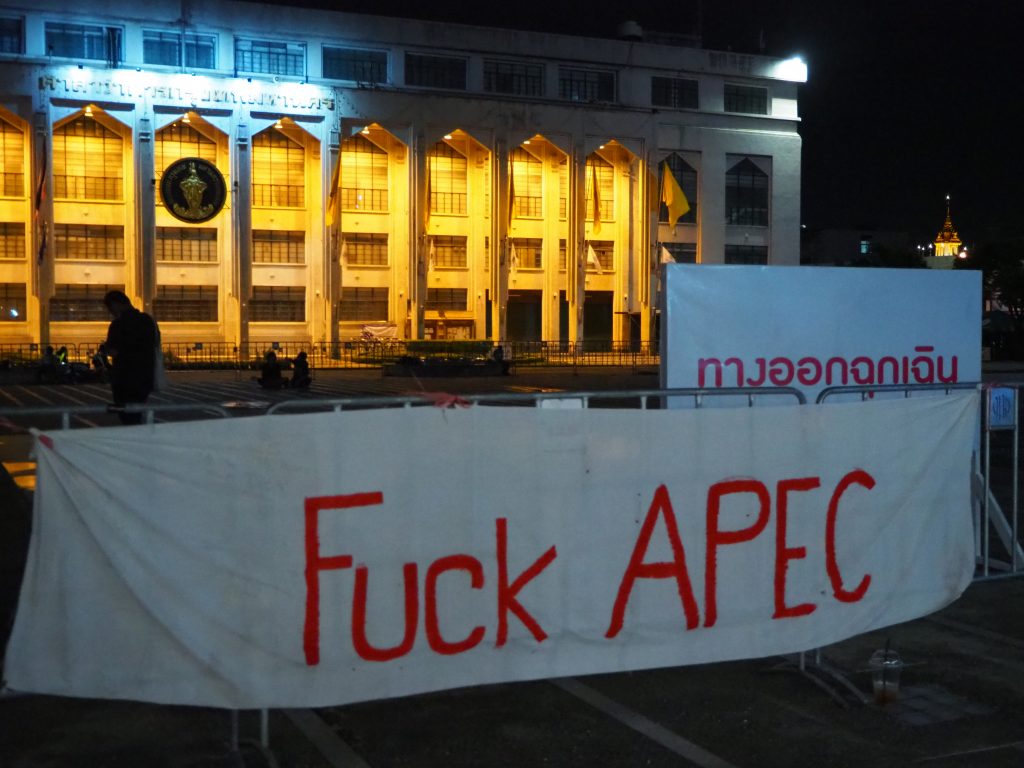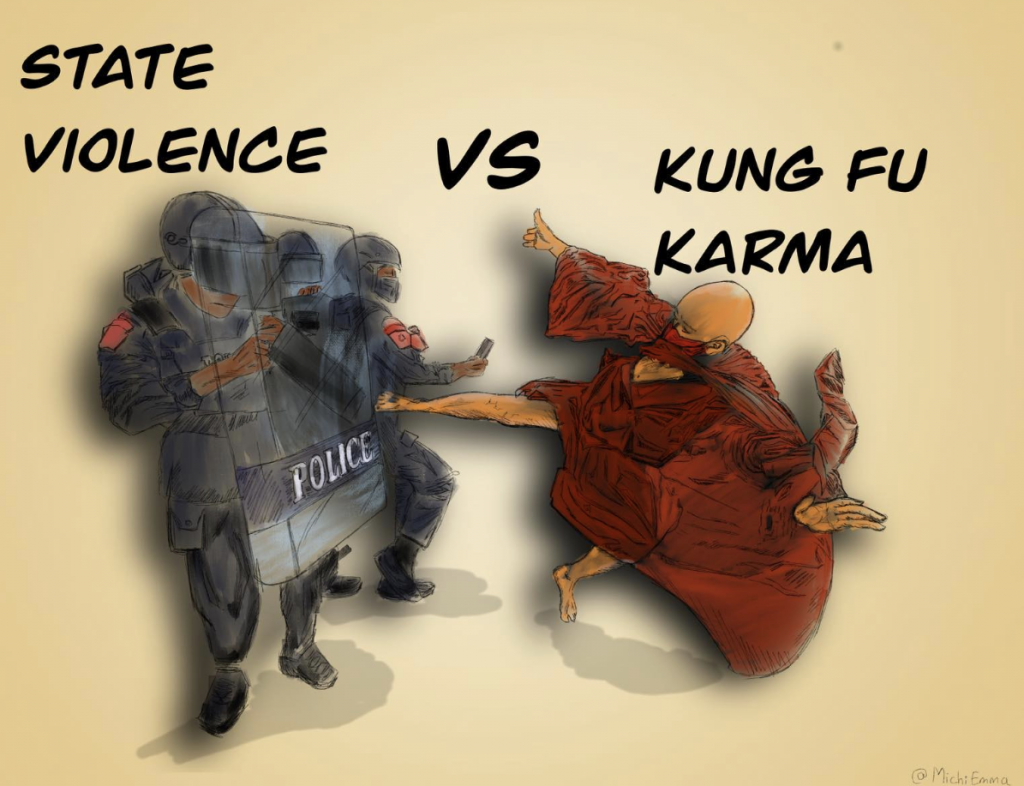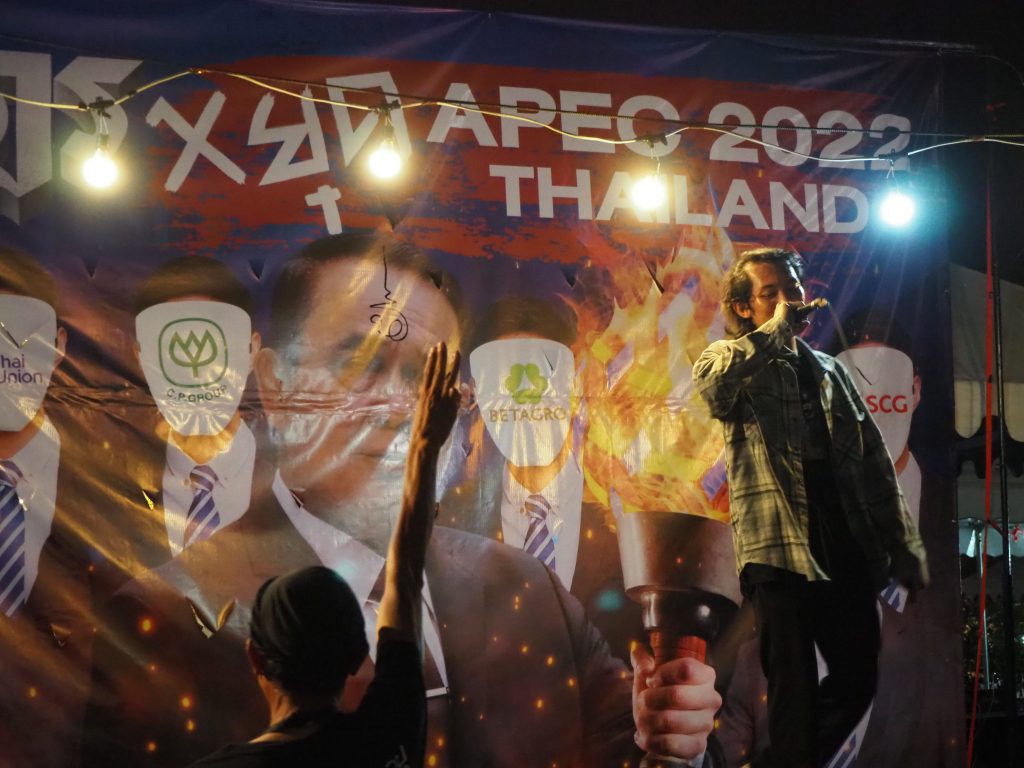Asian summits shut eyes to dirty business in Myanmar
Bangkok, Thailand – Pot lids and umbrellas, symbols of resistance in Myanmar, appeared in front of Thailand’s Prime Minister’s Office and United Nations headquarters as political leaders from the region gathered in the capital to discuss free trade zones and other economic issues.
November was a month where numerous international meetings took place in Southeast Asia, beginning with the 10th ASEAN-USA summit in Phnom Penh, Cambodia, followed by the G20 Bali Summit in Indonesia and the 29th Asia-Pacific Economic Cooperation summit (APEC) in Bangkok, Thailand.
But the intensifying crisis in Myanmar was mostly absent from this series of high-level talks. Even though the ASEAN summit in Cambodia barred the Junta representative from joining, there has been little progress in improving the situation in Myanmar. The meeting concluded to task the ASEAN foreign Minister to develop an implementation for the five-points consensus, an agreement between the nine ASEAN leaders and junta leader Min Aung Hlaing in April 2021 : an immediate end to violence in the country, dialogue among all parties, the appointment of a special envoy, humanitarian assistance by ASEAN and the special envoy’s visit to Myanmar to meet with all parties.

The following economic forums in Bali and Bangkok didn’t address the Burmese army atrocities. Joko Widodo, the president of Indonesia and host of the G20 summit, showed a clear sign of not wanting to bring in politics. “G20 is an economic forum, not a political forum so here we talk about the economy.” he replied to a reporter’s question about Russian Missiles in the Ukraine crisis.
However, human rights groups don’t see such a clear line. “People who benefit the most from the coup and help maintain military power are the businesses. This is why it’s very important to talk about business and human rights in these forums.” said Piyanut Kotsan in an interview with Visual Rebellion.
The director of Amnesty International Thailand led the protest action in front of the Prime Minister’s Office in Bangkok. A recent report from her team shows how business plays a key important role in supplying aviation fuel to the Myanmar air force leading to devastating air strikes, including a Thai oil and gas company. Thailand is also a key investor and buyer of natural gas in Myanmar, paying millions of dollars to Burmese military-linked companies every year.
On the first day of the APEC 2022 meeting from November 16th to 19th , Amnesty International Thailand called out the Thai government to take concrete action on investments in Myanmar, such as issuing regulations to state and non-state owned business enterprises as to comply with the UN’s principles of Business and Human Rights.
“The Burmese junta government doesn't care about their citizens and the image of their country, but they care about their benefits. Then an international trade meeting like APEC must talk about the Burmese situation”
Piyanut Kotsan Tweet

Myanmar is not part of the G20 nor APEC but both China and Russia, the main countries still making open deals with the junta, are member states.
Efforts to raise questions over the APEC meeting were silenced and hundreds of activists clashed with riot police during street protests in Bangkok. In shocking images, 25 people were arrested and charged, and dozens of people were injured, including monks, journalists and a young man from the Thalufah group who lost his eye due to a rubber bullet shot at close range.
According to Amnesty International Thailand, their activities about Myanmar were so closely monitored by the authorities that they had to changed their plan from having activists joining them to only having their organization being present with a few representatives.
As for Burmese civil society organizations and migrants living at the border between Thailand-Myanmar, they have been warned to keep out of staging any action during the summit. The Immigration Bureau (IB) of Thailand also tightened up the procedures for entering the country during the period.
“Those who are found to be involved in suspicious activities will be questioned and deported,” said Immigration Bureau commissioner, Pol Lt Gen Pakphumpipat Sajjapan.
The diplomatic meetings were carried out in the backdrop of the ongoing occupation of Ukraine by Russia, a crisis that has shifted the attention and the financial support of many Western countries from Myanmar.
The possibility of the escalating violence in Myanmar being resolved through ASEAN diplomacy is still very doubtful. Though Indonesia, who will chair the organization from next year, has clearly condemned the junta. Many activists view it as a positive sign and call the Indonesian government to engage the issue.
According to the International Federation of Journalists (IFJ), the Aliansi Jurnalis Independ (AJI) Indonesia and other pro-democracy activists filed a petition to the Constitutional Court of the Republic of Indonesia to allow Indonesian courts to prosecute human rights violation cases from Myanmar through the Indonesian legal system. In Timor-Leste, the Conselho de Imprensa (Press Council) of Timor-Leste (CITL) expressed serious concerns at the misleading representation of the situation of press freedom in Myanmar at the Dili Dialogue Forum by a representative of the Myanmar Press Council.

